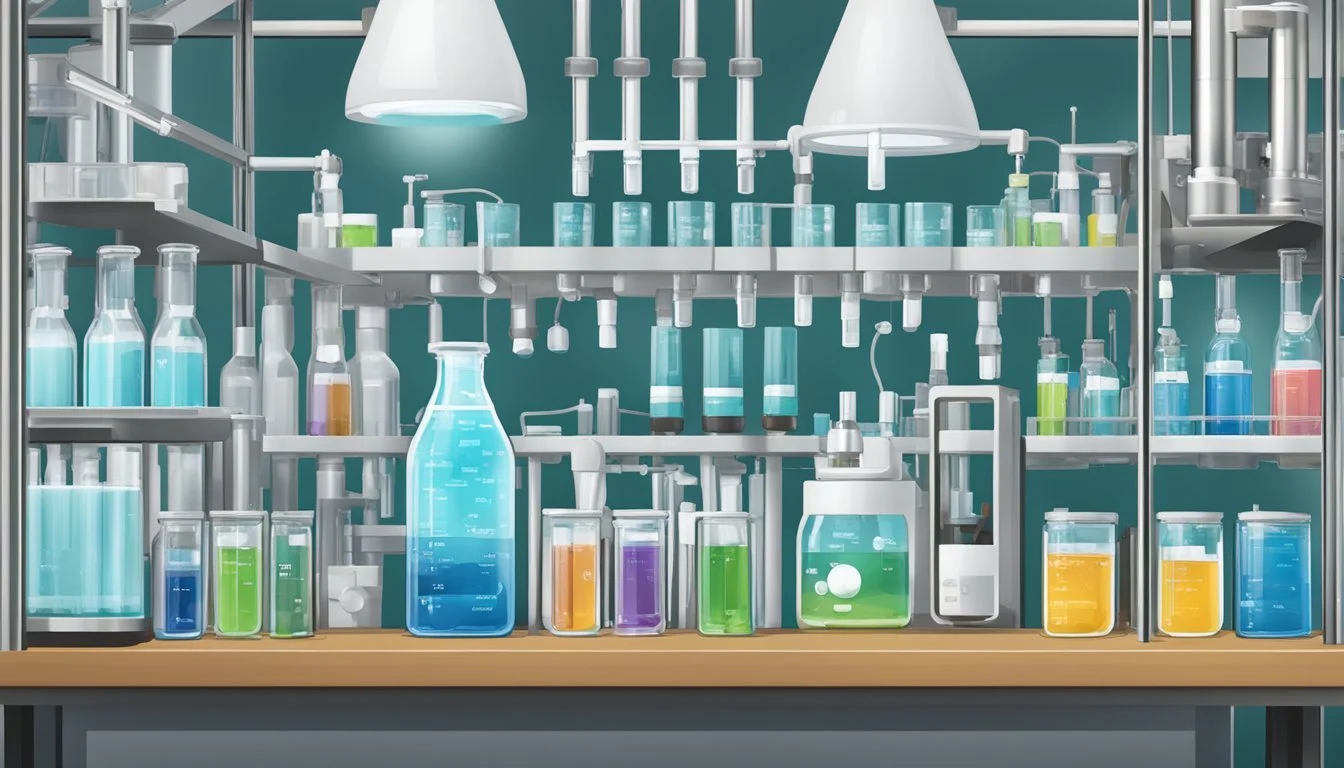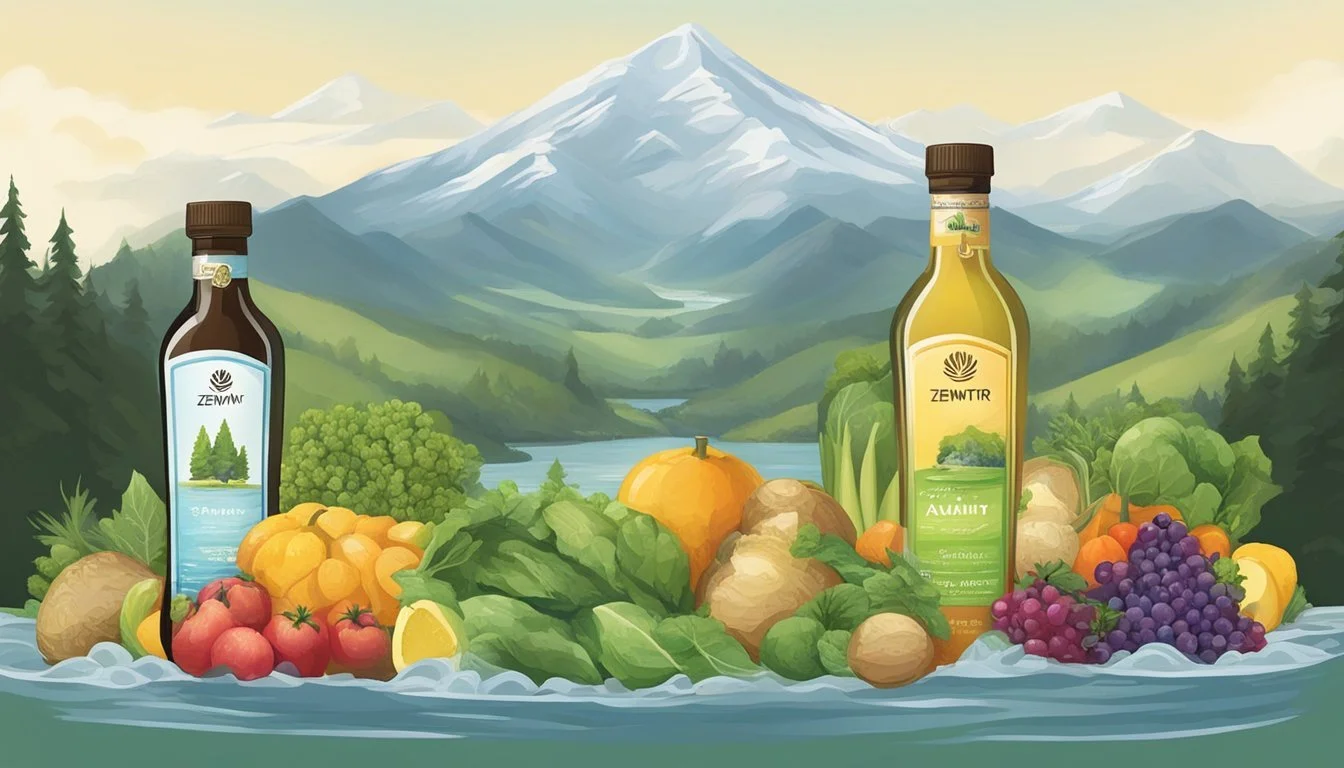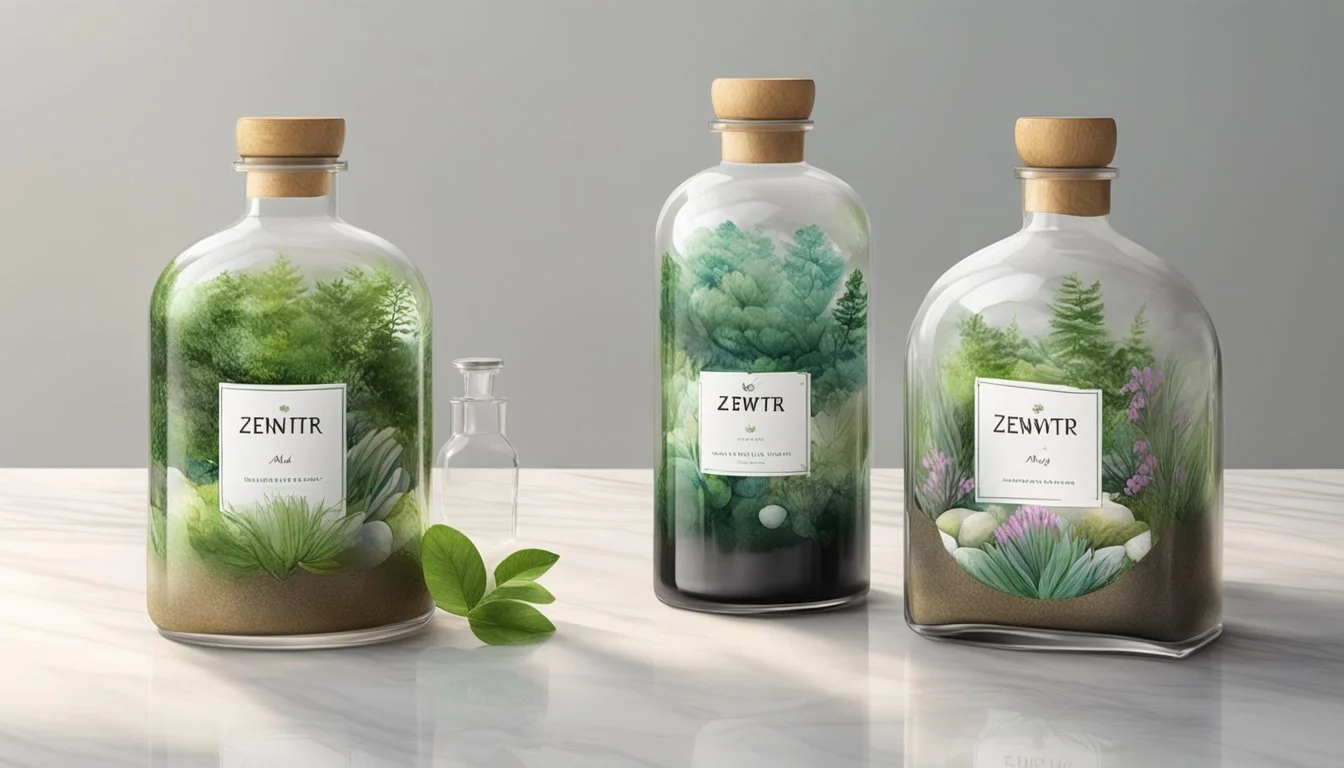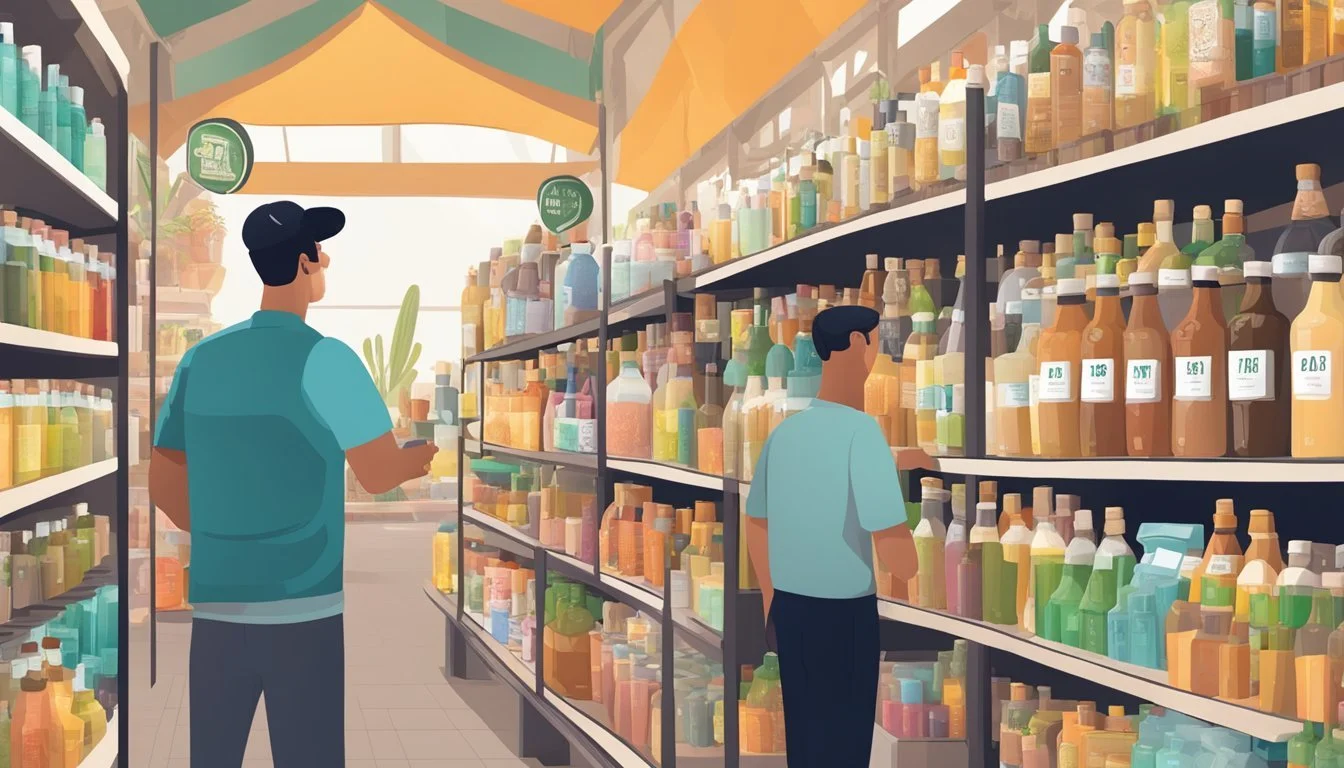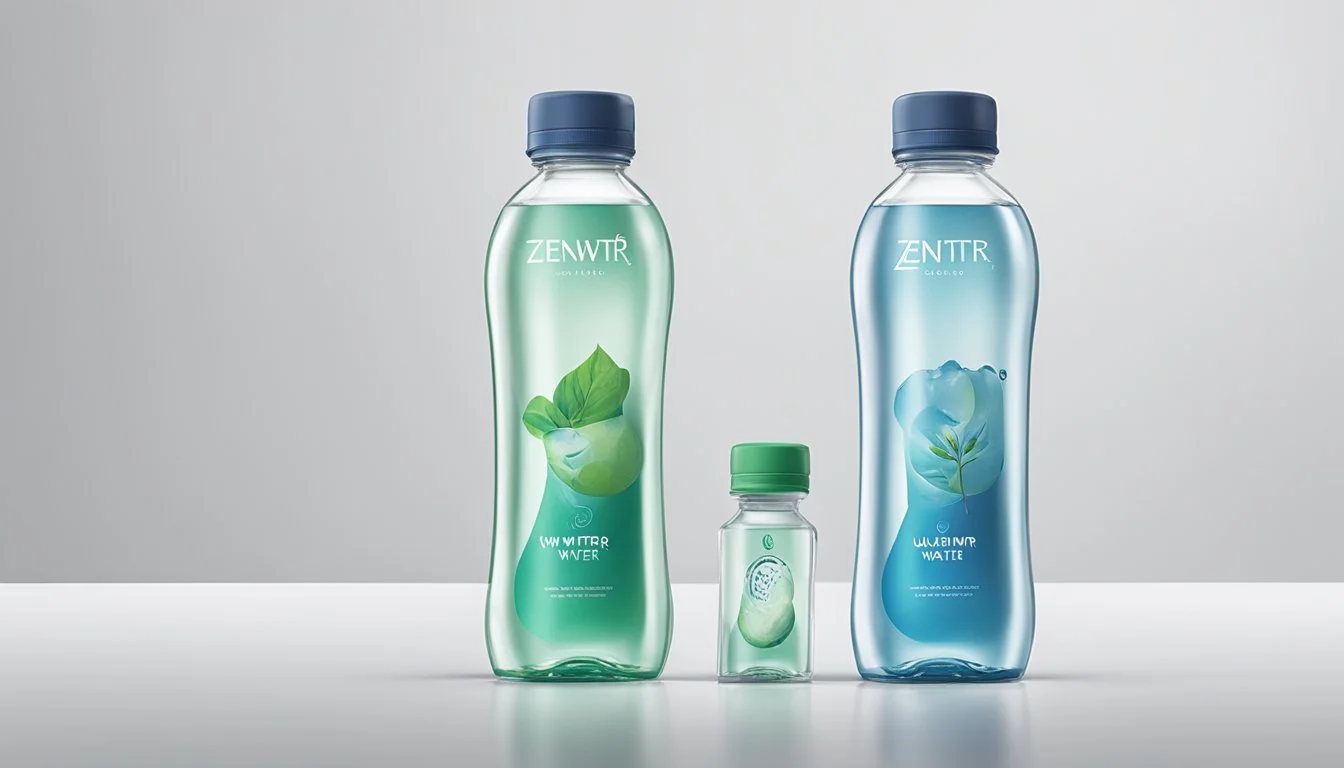Zenwtr vs. Augi
Which Bottled Water is Better for You?
When choosing a bottled water brand, ZenWTR and Augi often come up as top contenders. ZenWTR stands out for its eco-friendly approach, utilizing recycled ocean-bound plastic for its bottles. Additionally, ZenWTR boasts a high pH level of 9.5, offering natural alkalinity that appeals to health-conscious consumers.
Augi, on the other hand, focuses on purity and taste. It is often praised for its clean, crisp flavor and accessibility. Augi is also competitively priced, making it an appealing choice for everyday hydration needs without breaking the bank.
If you prioritize both environmental sustainability and high alkalinity in your bottled water, ZenWTR is the superior choice. For those who value affordability and a pure, refreshing taste, Augi offers reliable quality at a lower price point.
ZenWtr and Augi Overview
ZenWtr and Augi are unique bottled water brands with distinct histories and missions. Both brands offer a range of products but have different market positions. The following sections delve into these differences.
Brand History and Mission
ZenWtr was founded with a sustainability focus. It emphasizes eco-friendly practices, such as using bottles made from ocean-bound plastic. Their mission is to reduce plastic waste and provide premium alkaline water with a pH level of 9.5. ZenWtr champions environmental responsibility, making it a choice for eco-conscious consumers.
Augi is a more conventional brand, sourced from the Leesburg, Virginia municipal water supply. Its mission centers around providing purified water at an affordable price. Though not marketed as environmentally focused, Augi caters to customers looking for clean and accessible hydration. Both brands aim to address different consumer needs within the bottled water market.
Product Range and Availability
ZenWtr offers alkaline water with natural mineral content. It is typically available in 16.9 oz bottles priced between $2 to $3. Consumers can find ZenWtr in various grocery stores and select convenience stores. The focus on premium pricing is aligned with its commitment to quality and sustainability.
Augi is known for its purified water, available in various sizes. It is generally more affordably priced, making it accessible to a broad audience. The water is usually sold in grocery stores and convenience stores. Augi’s emphasis on affordability and clean taste caters to everyday hydration needs.
Scientific Analysis of Water Quality
This section examines the key scientific aspects of ZenWTR and Augi, focusing on their pH levels, mineral content, and any potential contaminants. Understanding these factors is crucial for consumers looking for high-quality, safe, and hydrating bottled water.
pH and Alkalinity
pH level influences the alkalinity of the water, impacting everything from flavor to potential health benefits. ZenWTR boasts a notable 9.5 pH, placing it in the alkaline water category. High pH levels in water can neutralize acid in the bloodstream, potentially improving metabolism and hydration.
Augi, on the other hand, typically features a pH around 7, making it neutral. This neutrality is often preferred by consumers who believe it offers balanced hydration without the slightly bitter taste of highly alkaline water. Overall, consumers need to choose based on their preference for alkaline versus neutral pH levels.
Mineral Content and Hydration
Minerals like calcium, magnesium, and potassium are essential for hydration and overall health. ZenWTR is marketed as containing essential electrolytes, though specific quantities are proprietary. These electrolytes can help replace those lost through sweat, making ZenWTR popular among athletes.
Augi also contains natural minerals, sourced from spring water. It often lists amounts of calcium and magnesium, providing transparency that appeals to health-conscious consumers. In addition, the natural mineral balance in Augi supports hydration and may contribute to a smoother taste.
Comparing the two, the choice depends on the importance of electrolytes versus natural mineral content for the consumer.
Presence of Contaminants
Safety and purity are paramount in bottled water. ZenWTR undergoes extensive purification processes, including reverse osmosis and UV light treatment, to ensure contaminant-free water. This rigorous quality control helps eliminate potential issues like lead or other harmful substances, ensuring consumer safety.
Augi also emphasizes safety, utilizing thorough purification processes and regular quality checks. This includes testing for common contaminants and ensuring adherence to safety standards. Both brands package their water in BPA-free plastic bottles, minimizing the risk of plastic-related contamination.
Consumers can be confident that both ZenWTR and Augi prioritize water safety through stringent purification and quality control measures. Choosing between them will likely come down to specific health needs and personal preferences for minerals and pH levels.
Environmental Impact and Sustainability
Both ZenWTR and Augi take significant measures to minimize their environmental impact and enhance sustainability. Key areas of focus include the use of recycled materials, responsible water sourcing, and contributions to ocean conservation efforts.
Use of Recycled Materials
ZenWTR leads with its innovative use of 100% ocean-bound plastic for packaging. This practice not only reduces the reliance on virgin plastic but helps clean coastal environments by repurposing waste destined for the ocean. For every bottle produced, ZenWTR underscores its commitment to mitigating plastic pollution.
Augi, in contrast, primarily utilizes recycled plastic for its bottles. While it may not exclusively use ocean-bound plastic, the brand ensures that its packaging remains highly sustainable. Augi’s approach helps reduce the overall waste and the demand for new plastic production, supporting a more circular economy.
Water Source and Extraction
ZenWTR sources its water from natural springs, focusing on retaining the natural minerals that contribute to its alkaline water profile. The extraction process is designed to be environmentally sustainable, minimizing the disruption to natural habitats.
Augi draws its water from an ancient artesian aquifer, which is a deep and sustainable water source. This method not only ensures high-quality water but also emphasizes long-term environmental sustainability. Augi ensures that the extraction process maintains the health of the aquifer and surrounding ecosystems.
Brand Contributions to Ocean Conservation
ZenWTR donates a portion of its profits to organizations dedicated to ocean conservation. This effort supports initiatives aimed at protecting marine life and cleaning up coastal environments. By doing so, ZenWTR extends its commitment to sustainability beyond packaging.
Augi also contributes to environmental causes, focusing on water conservation and reducing plastic waste. While Augi’s contributions may be broader in scope, it remains actively engaged in promoting eco-conscious practices that benefit the environment.
Both ZenWTR and Augi demonstrate a strong commitment to environmental sustainability through their use of recycled materials, sustainable water extraction, and contributions to conservation efforts.
Health and Dietary Considerations
ZenWTR and Augi bottled waters both offer potential health benefits that can make them more appealing than traditional tap water. These benefits primarily revolve around their alkalinity, mineral content, and integration into a balanced diet.
Alkaline Water Health Benefits
ZenWTR promotes its natural alkalinity with a pH of 9.5, which is higher than most bottled waters. Alkaline water is believed to help neutralize the acidity in the bloodstream, potentially benefiting those with acid reflux or heartburn.
Furthermore, some studies suggest that alkaline water might enhance hydration and contribute to better metabolism and nutrient absorption at the cellular level. While these claims need further scientific validation, many consumers appreciate the smoother taste associated with higher alkaline levels.
Comparison with Tap Water
When evaluating bottled water against tap water, ZenWTR and Augi stand out due to their purification processes and added minerals. ZenWTR undergoes filtration to remove impurities and retains beneficial minerals, making it distinct from tap water which may contain trace levels of chemicals or contaminants.
Augi offers similar benefits, ensuring a cleaner and often more appealing taste compared to municipal tap water. Tap water quality varies greatly by location, and consumers looking for consistency might prefer these bottled options.
Integrating into a Balanced Diet
Incorporating ZenWTR or Augi into a balanced diet involves more than just hydration. Both brands market their products as complements to a health-conscious lifestyle. Regular consumption of these waters can support overall hydration, a necessary component for cellular function and metabolism.
For those managing dietary restrictions or specific health conditions, these waters provide a predictable source of hydration without the variability of tap water. They can be particularly valuable in diets aiming to reduce acidic intake or increase mineral consumption.
Both ZenWTR and Augi strive to offer products that align with current health trends, emphasizing the importance of clean and beneficial hydration choices in daily routines.
Consumer Experience
ZenWTR and Augi offer distinct consumer experiences, focusing on unique elements like taste and design. These differences cater to varying preferences and priorities among consumers.
Taste Profile and Drinking Experience
ZenWTR is known for its high alkalinity, boasting a 9.5 pH level. This higher pH level gives it a smooth, refreshing taste that appeals to athletes and those prioritizing performance in hydration.
Augi provides a balanced taste profile that is both crisp and clean, making it suitable for everyday consumption. Its moderate pricing also adds convenience for regular use without compromising quality.
Both brands are free from plastic aftertastes, providing a pure drinking experience. ZenWTR's performance is slightly superior in terms of hydration quality, making it a premium choice.
Packaging and Design Elements
ZenWTR uses 100% recycled ocean-bound plastic for its bottles, emphasizing its commitment to sustainability. The sleek, modern design also catches the eye, enhancing its premium image.
Augi’s packaging focuses on simplicity and practicality. It often comes in glass bottles, adding a touch of elegance and supporting eco-friendly initiatives.
The materials and design used by both brands highlight their dedication to reducing environmental impact while providing an aesthetically pleasing product. ZenWTR's innovative approach stands out, but Augi's use of glass offers a distinct, appealing option.
Market Performance and Consumer Trends
The bottled water industry is experiencing significant growth, with preferences evolving towards eco-friendly options and premium products.
Sales and Popularity
ZenWTR and Augi are part of a growing bottled water market that includes prominent brands like Dasani, Aquafina, Evian, and Fiji.
ZenWTR, known for its eco-conscious approach, uses 100% recycled plastic bottles. This focus on sustainability has earned it a spot in stores like Whole Foods, boosting its market presence despite a higher price point ($2-$3 per bottle).
Augi focuses on premium quality and natural sources. With a comparable price range, it is gaining traction in upscale markets and specialty stores. Both brands cater to different niche markets but share a commitment to higher quality and sustainability.
Shifts in Consumer Preferences
Consumer trends indicate a shift towards environmentally friendly products and premium quality water.
Consumers today prioritize sustainability, gravitating towards brands using recycled materials. ZenWTR's use of ocean-bound plastics positions it favorably among eco-conscious buyers. Augi's natural sourcing appeals to those seeking purity and health benefits.
Convenience stores reflect changing preferences, stocking more sustainable and premium brands alongside traditional ones like Dasani and Aquafina. This shift highlights increased demand for products that align with ethical and health-conscious values, shaping the future of the bottled water market.
Price Point Analysis
ZenWTR and Augi have distinct price points that reflect their positioning as premium bottled water options with unique features. These differences can be crucial for consumers when deciding which brand offers better value for their money.
Cost Comparison
ZenWTR is marketed as a premium bottled water, often priced between $2 and $3 per bottle. This is attributed to its sustainable packaging and natural alkalinity with a pH level of 9.5. ZenWTR's eco-friendly approach is appealing to environmentally conscious consumers willing to pay a bit more.
Augi, on the other hand, tends to be priced more moderately, typically around $1 to $2 per bottle. This makes it a viable option for budget-conscious consumers. Despite the lower price, Augi does not compromise on quality, offering naturally alkaline water sourced from natural artesian wells.
Brand Price Range pH Level Key Features ZenWTR $2 - $3 9.5 Sustainable packaging, high mineral content Augi $1 - $2 7 - 8 Natural artesian source, affordable
Value for Money
When considering value for money, consumers must weigh the price against the benefits each brand offers. ZenWTR justifies its higher price with its environmentally friendly packaging and higher pH level, which some believe contributes to better hydration and health benefits.
Augi, while lower in price, still offers significant value through its naturally sourced alkaline water. It provides a balance of quality and affordability, making it accessible without sacrificing the benefits of natural minerals found in naturally alkaline water.
Both brands cater to different consumer needs, whether it is sustainability, health benefits, or affordability, making the choice subjective based on individual priorities.
More About Zenwtr
Mountain Valley Spring Water vs Zenwtr: Which Bottled Water is Better?
Richard's Rainwater vs Zenwtr: Which Bottled Water is Better?
Whole Foods Italian Still Mineral water vs Zenwtr: Which Bottled Water is Better?
Zenwtr vs Kirkland Signature: Which Bottled Water is Better?



